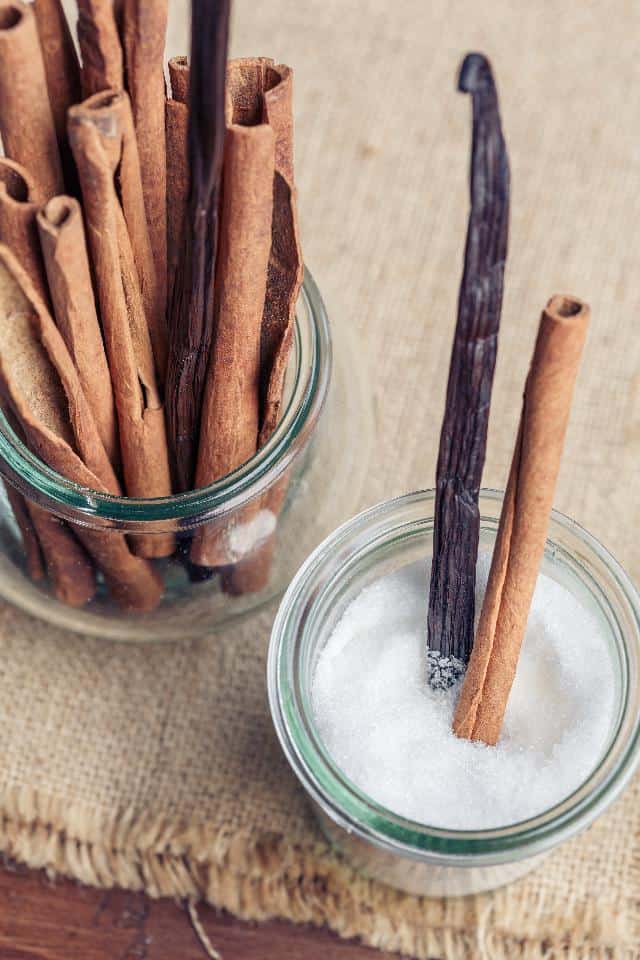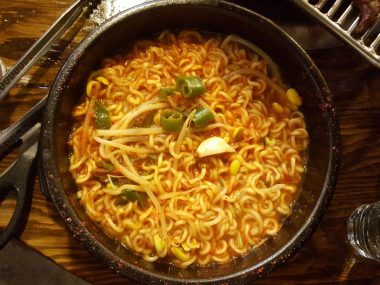Rose Water is essential to some baked goodies and savory dishes to add that floral aroma. Not too strong but just enough to add a little hint of flowery goodness to the food.
No wonder it’s a favorite of most cooks to add in their dishes and has always been a traditional ingredient in some cultural dishes.
However, in some areas rose water isn’t that common. Good thing that you can substitute it with lavender essence, lemon juice, rose essence, orange water, vanilla extract, and cinnamon.
Rose Water Substitutes
Let’s talk about more of these substitutes and why it’s effective to substitute rose water in your dishes.
1. Lavender Essence
Surprisingly, the lovely smell of lavender is similar to the rose water. Notice how you use it as a scent to your home and it easily whiffs around transforming the overall vibe.
It provides the same effect when added to your favorite dishes or desserts. On top of that, both have the same taste, too.
If you want that sweet aroma and taste to your dish, opt for lavender. That’s the best choice you can get on the market. When substituting, use 1 teaspoon of lavender essence for 1 teaspoon of rose water.
2. Lemon Juice
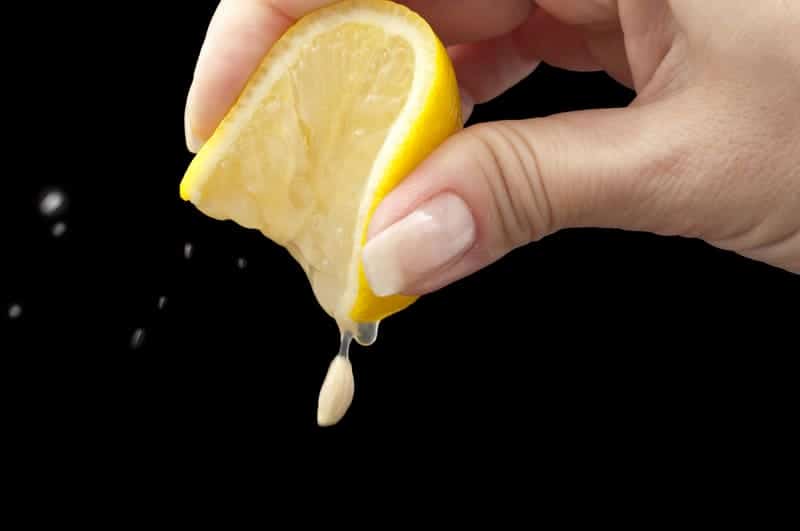
Lemon juice might not offer the same floral effect that the rose water does, however, there’s a solution to that. For every teaspoon of lemon juice, just add half a teaspoon of sugar.
You’ll see that instead of having it too citrusy, it provides a sweeter effect to the dish just like the rose water. Adding sugar helps you get rid of its bitter taste when cooked.
You can also use lemon juice as a seasoning, topping, vinaigrette, and more. If you don’t have a lemon on hand, lime and orange can do the same trick.
3. Rose Essence
Rose essence is pretty much the same as rose water. However, it’s more concentrated than rose water. During the process of extraction, the liquid part evaporates, only leaving the key juices of the roses. So don’t be surprised why most of it is sold in small bottles.
When substituting, use half a teaspoon of rose essence over two teaspoons of rose water. A few drops can already go a long way so no need to be generous of the amount.
4. Orange Water
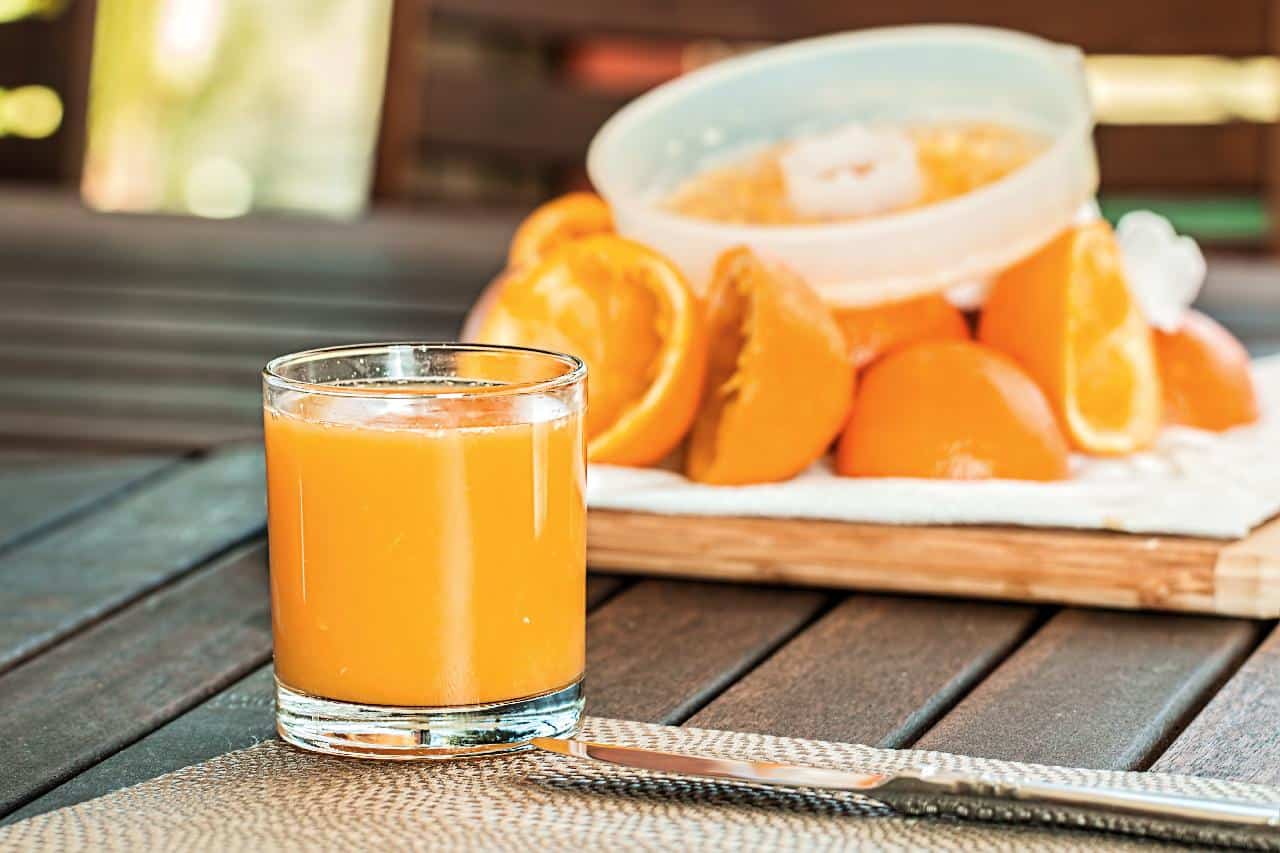
Orange water went through the same processing as rose water. It’s made of crushed orange flowers and then distilled water, both mixed and set aside for a good amount of time. Enabling the whole flavor and aroma to steep through the liquid for best results.
Since orange is more on a fruity side, you will never get the floral scent though it was extracted from its flowers. If you don’t mind the citrus effect, this can be a good substitute for rose water.
Use the same method I mentioned for lemon juice. Substitute a teaspoon of rose water with a teaspoon of orange water. Then add half a teaspoon of sugar. You might get a fruity scent but you’ll still retain sweet goodness to it.
5. Vanilla Extract
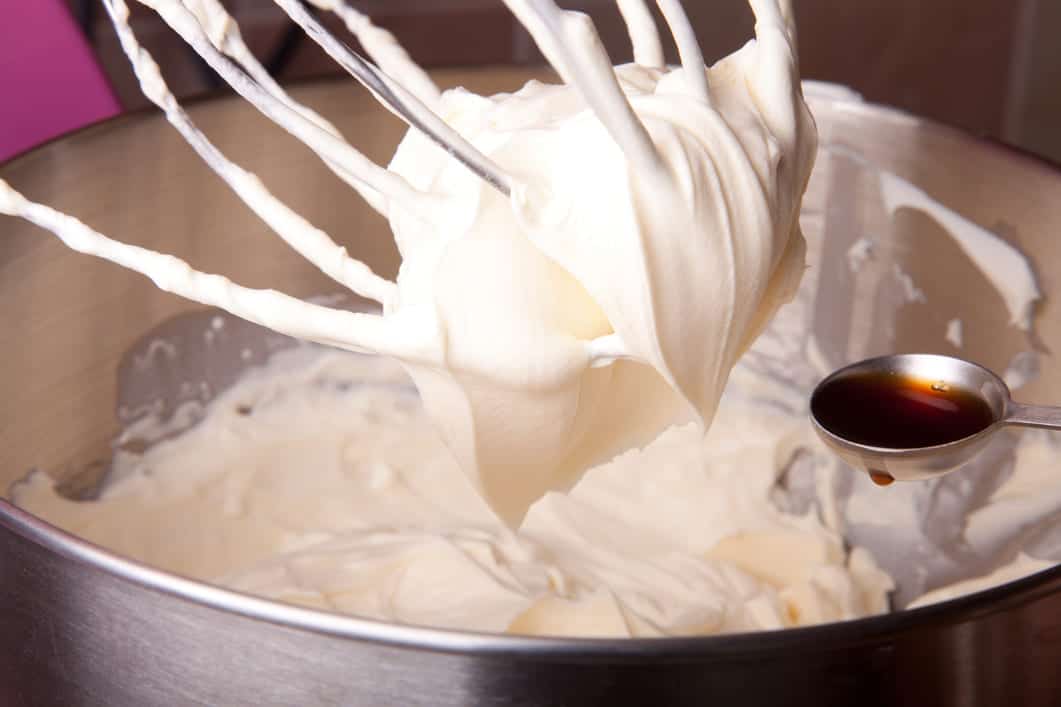
When all odds are against you, I’m pretty sure you have a little bottle of that vanilla extract at home. It’s the most common and readily available baking ingredient that everyone has. When you have no option, vanilla extract is the answer to your kitchen woes.
Although it will not provide that floral aroma and taste, vanilla extract has an undeniable sweet scent perfect for any baked dish. I don’t recommend it for savory dishes because of the “sweet-smell”.
Just a few drops of it can already make a difference to the dish. Just substitute one teaspoon of rose water with half a teaspoon of vanilla extract.
6. Cinnamon
Cinnamon is one of the all-time favorite spices especially when it comes to baking. It’s aromatic, sweet, and offers warmth that you will never find from any other spices.
It is also a great substitute for rose water. Although no hint of floral effect from it, it’s sweetness can make up for it that your family and guests wouldn’t even notice the difference.
Since cinnamon is stronger and sweeter, use just the right amount for the desserts. Most dessert already calls for milk and sugar, so adding more cinnamon can make the dish too sweet.
To substitute a teaspoon of rose water, just use half a teaspoon of cinnamon. Now that’s all the substitutes that you can use when rose water is not available.
However, if you really can’t compromise the quality and effect of using rose water, there’s another option. Here’s a quick recipe to help you concoct your homemade rose water.
Homemade Rose Water Recipe
Ingredients:
- 10 stems of medium-sized roses
- 2 liters of distilled water
- 2 air-tight bottles/jars
Instructions:
- Take off all the rose petals from its stems and transfer them to a big strainer.
- Wash it off with lukewarm water to take out any chemicals or dirt from the petals.
- Transfer the washed petals to a large pot. Then, add the distilled water together with it.
- Bring the pot to a boil over medium heat. Once it boils, cover the pot to simmer.
- Have the rose water mixture simmer for at least 30 minutes.
- After 30 minutes, strain the rose petals from the distilled water. Discard the rose petals and set aside the water to cool down.
- Store the rose water in an airtight bottle or jar and wait for 2 weeks before using it.
Summary
There you have it! It’s not hard to make but just like a fine wine, waiting is important to ensure that you get the best flavor and aroma of the rose water.
Make sure to share this recipe with your loved ones who like using rose water in their favorite dishes. It’s better to have your own stash than running out the next time you need it.

